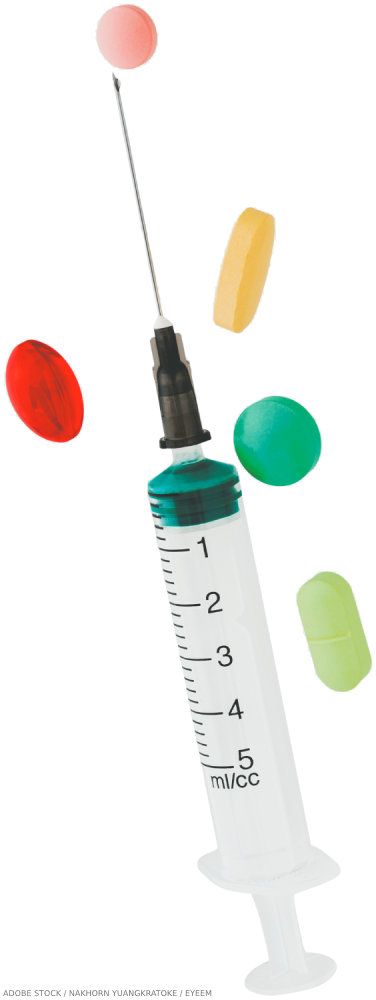 Ozoralizumab is an investigational rheumatoid arthritis (RA) treatment. On July 28, the agent was approved in Japan under the brand name Nanozora as a 30 mg subcutaneous auto-injection. Ozoralizumab has a prolonged serum half-life enabling patients to receive treatment once every four weeks.1,2
Ozoralizumab is an investigational rheumatoid arthritis (RA) treatment. On July 28, the agent was approved in Japan under the brand name Nanozora as a 30 mg subcutaneous auto-injection. Ozoralizumab has a prolonged serum half-life enabling patients to receive treatment once every four weeks.1,2
Background
Ozoralizumab, developed by Taisho Pharmaceutical Co. Ltd. (under license from Ablynx, a Sanofi affiliate), received its first approval in Japan in September 2022 for the treatment of patients with RA that cannot be adequately managed using currently available treatments.1,2
The agent is a trivalent, anti-tumor necrosis factor-α (TNFα) nanobody compound that binds to TNFα and human serum albumin. This bispecific structure links two humanized anti-TNFα nanobody VHHs with a humanized anti-human serum albumin (HSA) nanobody VHH. Nanobody VHHs are the variable regions of heavy-chain-only antibodies (VHH) produced naturally from llamas and similar animals.1,2
Ozoralizumab is just one example of a nanobody compound. Nanobodies are being investigated for imaging and disease therapy because of their unique properties.3 Nanobody VHHs are about a tenth the size of conventional antibodies and have the potential to reach human disease targets that are inaccessible to conventional antibodies. Nanobody VHHs are small, stable and may be less immunogenic than currently available monoclonal antibodies. They are also less costly to produce and can be more rapidly generated for large-scale production than currently available monoclonal antibodies.
The Research
In a study, Takeuchi et al. evaluated the pharmacokinetic profile and effectiveness of ozoralizumab in Japanese patients with RA by analyzing data from the OHZORA and NATSUZORA clinical trials. The researchers also evaluated the effects of patient baseline characteristics and anti-drug antibodies on the pharmacokinetics and efficacy of ozoralizumab. Both studies were randomized, multi-center clinical trials that evaluated ozoralizumab in patients with RA over 52 weeks.4
The OHZORA study included patients with RA (n=381) who had an inadequate response to methotrexate. These patients received either 30 mg or 80 mg of subcutaneous ozoralizumab administered once every four weeks concomitantly with methotrexate. Ozoralizumab proved superior to placebo, with patients achieving an ACR20 response by week 16, which was the study’s primary end point.
The NATSUZORA study evaluated patients with RA (n=140) who did not concomitantly receive methotrexate. These patients also showed improvements in clinical symptoms and bodily function after receiving either 30 mg or 80 mg of ozoralizumab administered once every four weeks. The patients in this latter study received conventional synthetic disease-modifying anti-rheumatic drugs (DMARDs), which were then discontinued due to safety concerns.
